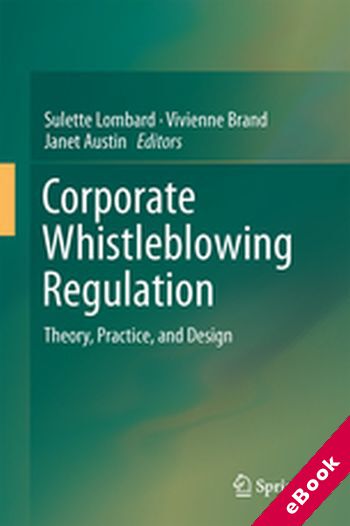
The device(s) you use to access the eBook content must be authorized with an Adobe ID before you download the product otherwise it will fail to register correctly.
For further information see https://www.wildy.com/ebook-formats
Once the order is confirmed an automated e-mail will be sent to you to allow you to download the eBook.
All eBooks are supplied firm sale and cannot be returned. If you believe there is a fault with your eBook then contact us on ebooks@wildy.com and we will help in resolving the issue. This does not affect your statutory rights.
This book adopts a cross-jurisdictional perspective to consider contemporary corporate whistleblowing issues from an ethical theoretical perspective, regulatory perspective, and practical perspective. It includes in particular arguments in favour of and against the adoption of financial incentive schemes for whistleblowers, as well as the potential implications of adopting such schemes. This approach provides a valuable opportunity for comparison from a law reform perspective.
The book brings together authors from various jurisdictions - Canada, Australia, and the USA - who, through their exposure to this area of law, be it as practitioners, regulators, or academics, offer valuable and interesting insights on the emerging and topical area of corporate whistleblowing generally, and whistleblowing rewards in particular. These three jurisdictions were selected on the basis of their reform-oriented stance on corporate whistleblowing and/or implementation of financial incentives for whistleblowing, creating an opportunity to assess contemporary regulatory structures and in particular how incentives measures could interact with corporate whistleblowing regulatory frameworks, and how they could contribute to improved governance. The reasons for the rejection of the notion of financial incentives in the United Kingdom are also reviewed, in order to provide a comparative overview.
The book provides useful guidance for those who may be affected by the implementation of corporate whistleblowing schemes, including for reward, whether as regulators, practitioners, company directors, or whistle blowers.